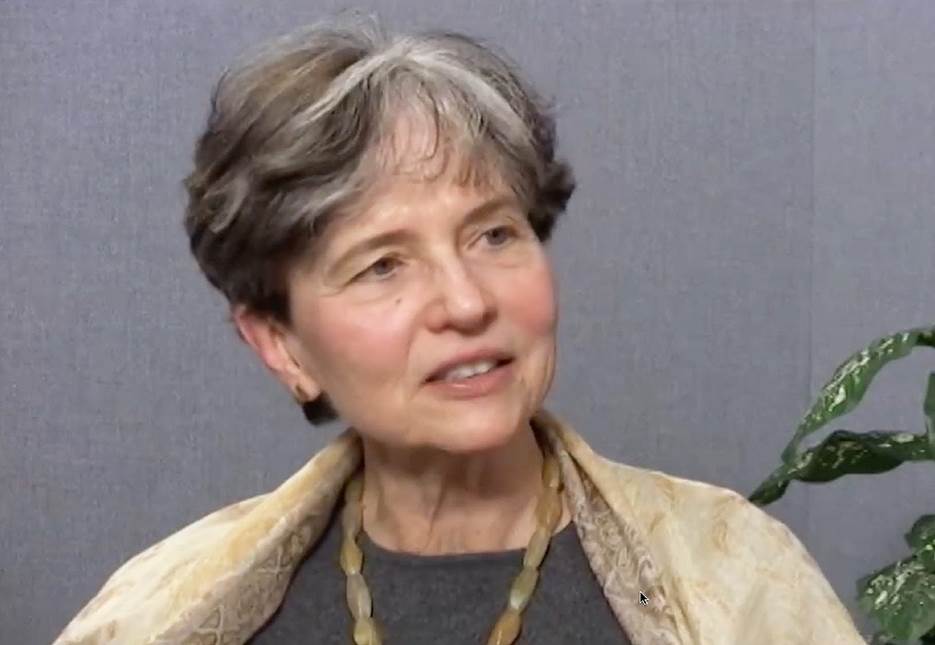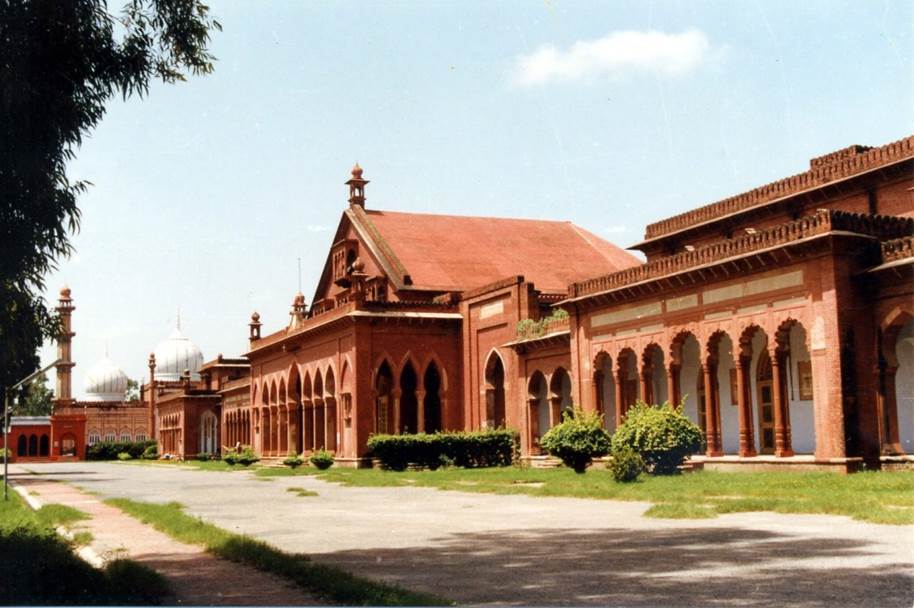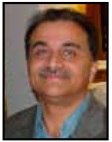

Dr Barbara Metcalf

Aligarh Muslim University Strachey Hall and Jama Masjid
Interview: Dr Barbara Metcalf, Recipient of the Sir Syed Excellence Award 2022
By Ras H. Siddiqui

UC Davis professor emerita of history, Barbara Daly Metcalf was awarded the Sir Syed Excellence Award on October 17, 2022, by India’s Aligarh Muslim University (AMU). She accepted this award virtually, prompting correspondent Ras Siddiqui (RS) to conduct an email interview of Barbara, who is one of the finest American scholars focused on the Urdu language, and on Indian Muslim history during British rule in South Asia. The award was presented on the 205 th anniversary of the birth of the founder of AMU, Sir Syed Ahmad Khan (1817-1898). The interview is shared below:
RS: How did it feel to receive the news that you had been named the recipient of the Sir Syed Excellence Award for the year 2022?
Barbara: I was completely surprised, and I felt deeply moved and honored to receive the award. As I said in my comments at the award ceremony, I regarded the award not only to be one given to me, but also a recognition of the importance of professional, fact-based history of India at a time when a distorted history has been used against minorities.
RS: How did an American, born in Philadelphia, develop such a deep interest in Indian history?
Barbara: I was drawn to British history, from there to the empire, and from there to India. This was the mid-1960s when the whole approach of “area studies” was beginning in American higher education with the implication for a field like British history that an area would no longer be studied from the top down (British policy, “the expansion of Europe,” etc.) but from the languages, perspectives, institutions, etc. of the populations being colonized.
RS: The history of South Asia is a vast canvas. A related question does come to mind. Why did you not focus on the famed periods like the Mauryan, Delhi Sultanate, the Mughals or the Marathas and instead chose the little-known topic of “Islamic Revival in British India: Deoband, 1860–1900” as your first work?
Barbara: Even if my angle was to be based in area expertise, I still was interested in Britain, so I wanted to keep my focus on the modern period. I became interested in Islamic scholars and their new institutions in the 19 th century given a general assumption that creative change in the colonial period was limited to people working in the colonial ambit, familiar with English language and so forth.
RS: The period after 1857 when the British officially took over the reins of major parts of the subcontinent is often romanticized and seen through a British lens. But you instead chose to study a niche area and concentrated on the people who happened to have lost the most, the Indian Muslims. What attracted you towards them?
Barbara: The theoretical angle on modernization theory that I just mentioned attracted me. In the course of working on the project, however, I became energized by what seemed to me the importance of working on a misunderstood, marginalized minority.
RS: Have you yourself visited the Darul Uloom Deoband, Jamia Millia Islamia in Delhi or Aligarh Muslim University? If so, how would you compare them?
Barbara: I have visited all three. For me personally one key similarity mattered, namely, the hospitality and openness I encountered in all three.
RS: How important do you think Sir Syed’s role has been in the Indian Muslim experience post-1857 after the British took over?
Barbara: A colleague once made the interesting comment that the two late-nineteenth century figures who get a lot of attention as intellectual leaders in their religious traditions, Sir Syed, and Swami Dayanand, had in fact relatively little influence in terms of everyday core doctrine and ritual for Muslims and Hindus respectively. Nonetheless, Sir Syed is important as a pioneer in Islamic modernist thought and that should not be underestimated. He of course is also preeminent in contributing to a vision of Muslims in India as a community and seeing the importance of mastery of English and European science.
RS: A scholar never truly retires. Are you working on anything interesting these days?
Barbara: I’ve just published an article in the current issue of Comparative Studies in Society and History, “A Sovereign and Virtuous Body: The Competent Muslim Woman’s Guide to Health in Thanawi’s Bihishtī Zēwar.” This is a final piece of my long-term interest in the way Maulana Thanawi’s influential book has been important for women’s lives from the beginning of the 20 th century down to the present. I also published this year an article relevant to my current book-length project on the succession of women who ruled the princely state of Bhopal (from 1819 to 1926, with only one brief introduction.) The title is “Photography and Imagination: White Socks and Mughal Costumes in Nineteenth-Century Bhopal.” It describes a fascinating moment when the then ruler, Nawab Sikandar Begum (r. 1844-68), made use of a British project to document “tribes and castes” to make her own claims to power and legitimacy.
RS: Thank You.
To conclude, when we received word from a San Francisco Bay Area AMU alumnus about this award being presented to Dr Barbara Metcalf, it became a priority to pursue this interview. Scholars like her are a rarity. It was also great to hear that her passion for work on this segment of Indian Muslim history remains strong. The Sir Syed Excellence Award given to her is a very well-deserved recognition that should make all who are connected to Aligarh Muslim University proud.

